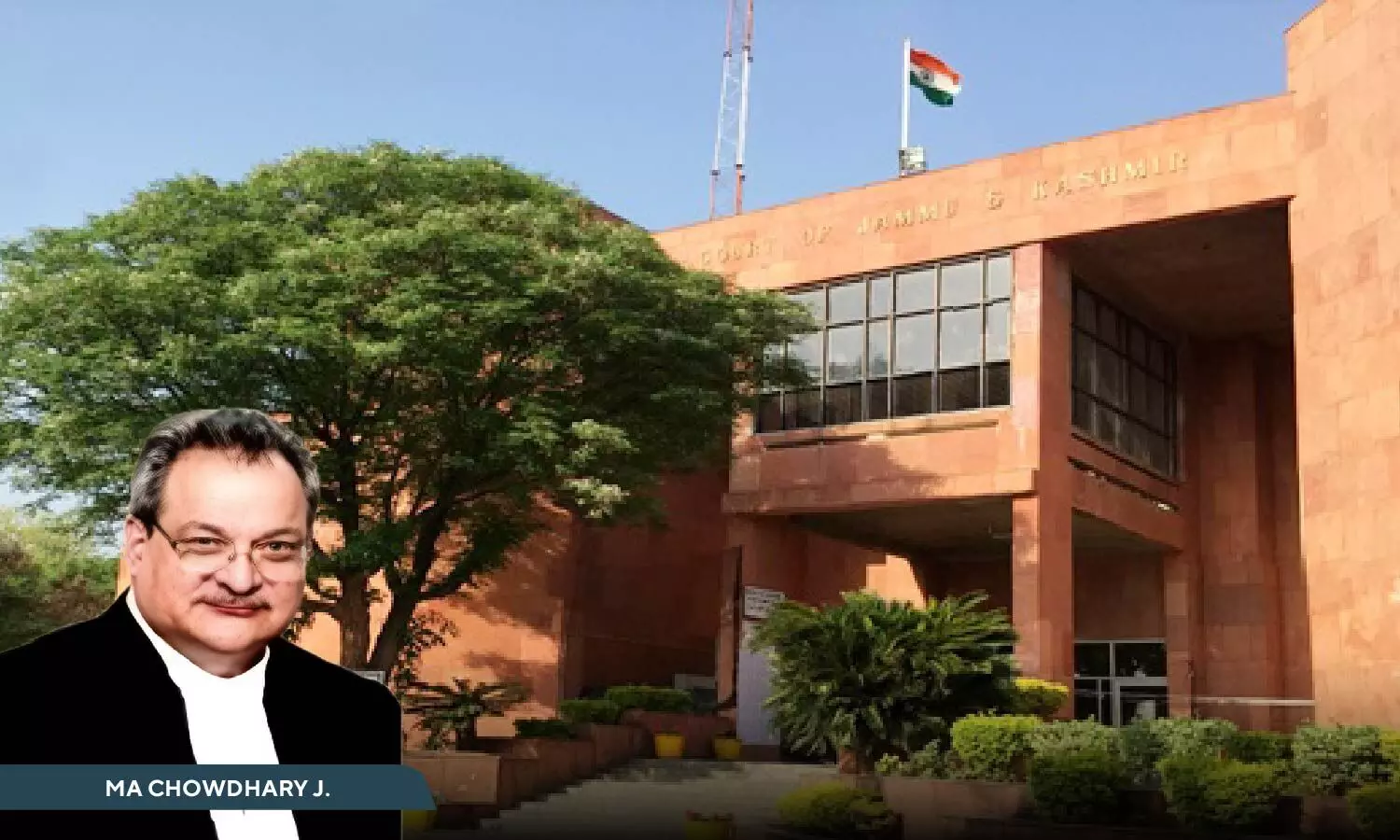
Justice M.A. Chowdhary, Jammu & Kashmir and Ladakh High Court
Criminal Family Background Not A Valid Reason To Deny Passport: J&K&L High Court
 |
|The petitioner filed the petition before the court due to the delay in the CID verification process.
The Jammu and Kashmir High Court ruled that a criminal family background cannot serve as a valid reason for denying a passport application.
The Court emphasized that a speculative assumption, without direct evidence, cannot justify restricting an individual’s freedom of movement.
The petitioner, a diploma holder in engineering, applied for a passport to seek better job opportunities abroad but received no response from the authorities after a year. Consequently, the petitioner filed a petition before the court due to the delay in the CID verification process.
A Bench of Justice M.A. Chowdhary said, "It should have been the activities of the petitioner which should have formed the basis either for permitting or rejecting the request for issuance of a passport in his favor. The basis for not recommending the case of the petitioner for the issuance of a passport does not have any reasonable relation or nexus with the activities of the petitioner, as the same does not even remotely connect the petitioner with any activity which could be termed as prejudicial to the security, sovereignty, and integrity of the State or the Country."
The Court found no justification for denying a passport to the petitioner based solely on his brother’s past involvement in militant activities in 2011, which led to his brother’s death, and the fact that the petitioner’s father was listed as an “Over Ground Worker” (OGW). The Court made it clear that the decision should be based on the petitioner’s own actions and not on his family’s history.
The Court also highlighted the provisions of the Passport Act, which allow authorities to deny a passport only if there is a credible reason to believe that the applicant’s actions could pose a risk to state security or to international relations. However, in the petitioner’s case, the reasons cited for refusal were purely speculative and not based on any concrete evidence concerning the petitioner himself.
The Court ruled that denying the petitioner’s passport based on his brother’s alleged actions was a violation of his constitutional rights under Article 21, which guarantees the right to life and personal liberty.
The Court directed the authorities, specifically the Criminal Investigation Department (CID), to submit a fresh report that is unbiased and not influenced by the actions of the petitioner’s family members. The Regional Passport Officer was ordered to review the case and make a decision based on this new report within six weeks, ensuring that the petitioner’s case is processed fairly and promptly.
Cause Title: Mohd. Amir Malik v. Union of India & Ors.
Appearance:
Petitioner: Advocate B.S. Bali
Respondents: Advocates ishal Sharma, Monika KohliThe Jammu and Kashmir High Court ruled that a criminal family background cannot serve as a valid reason for denying a passport application.
The Court emphasized that a speculative assumption, without direct evidence, cannot justify restricting an individual’s freedom of movement.
The petitioner, a diploma holder in engineering, applied for a passport to seek better job opportunities abroad but received no response from the authorities after a year. Consequently, the petitioner filed a petition before the court due to the delay in the CID verification process.
A Bench of Justice M.A. Chowdhary said, "It should have been the activities of the petitioner which should have formed the basis either for permitting or rejecting the request for issuance of a passport in his favor. The basis for not recommending the case of the petitioner for the issuance of a passport does not have any reasonable relation or nexus with the activities of the petitioner, as the same does not even remotely connect the petitioner with any activity which could be termed as prejudicial to the security, sovereignty, and integrity of the State or the Country."
The Court found no justification for denying a passport to the petitioner based solely on his brother’s past involvement in militant activities in 2011, which led to his brother’s death, and the fact that the petitioner’s father was listed as an “Over Ground Worker” (OGW). The Court made it clear that the decision should be based on the petitioner’s own actions and not on his family’s history.
The Court also highlighted the provisions of the Passport Act, which allow authorities to deny a passport only if there is a credible reason to believe that the applicant’s actions could pose a risk to state security or to international relations. However, in the petitioner’s case, the reasons cited for refusal were purely speculative and not based on any concrete evidence concerning the petitioner himself.
The Court ruled that denying the petitioner’s passport based on his brother’s alleged actions was a violation of his constitutional rights under Article 21, which guarantees the right to life and personal liberty.
The Court directed the authorities, specifically the Criminal Investigation Department (CID), to submit a fresh report that is unbiased and not influenced by the actions of the petitioner’s family members. The Regional Passport Officer was ordered to review the case and make a decision based on this new report within six weeks, ensuring that the petitioner’s case is processed fairly and promptly.
Cause Title: Mohd. Amir Malik v. Union of India & Ors.
Appearance:
Petitioner: Advocate B.S. Bali
Respondents: Advocates Vishal Sharma, Monika Kohli
Click here to read/download Order